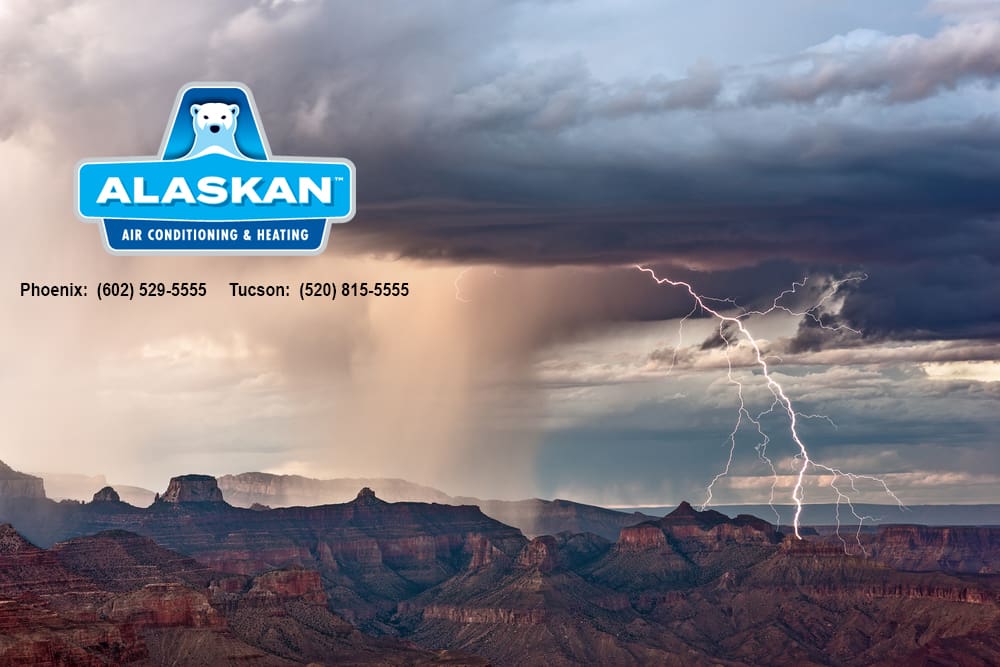Monsoon season this year is on BLAST! Mother Nature is definitely delivering the blows: lightening, hail, winds and even a tornado in AZ this summer.
This extreme weather can create major issues especially when hail, too much rain and wind, and lightning causes the HVAC to quit working. Hail can do damage to the electrical components and fan blades when it is excessive. Lightning strikes can cause the power to go out and cause electrical malfunctions not just in the air conditioning system, but throughout the home. Water and wind damage can push debris up against the outdoor condensing unit or heat pump causing punctures or major e.
If you take a few steps ahead of time, you may not get caught in the damage major storms can cause. Here’s four ways you can prepare in advanced of the next one:
Install a Whole House Surge Suppressor. Safeguard against power surges that cause your system to hiccup and require reset by installing a whole house surge suppression system. While not 100% fail proof, it’s going to keep your electrical system protected more than any other surge protector will.
Trim Around the Outdoor Condensing Unit or Heat Pump. If you have a lot of vegetation or trees near the outdoor unit, keep them pruned so that the big winds and heavy rains don’t send flying debris into the system. Don’t store lawn furniture or other heavy equipment around the outdoor HVAC system.
Shut Off the HVAC System. When a major storm is forecasted, shut off the circuit breaker. This will prevent electrical surges, while reducing the odds of a damage from a lightning strike. Monsoons usually don’t last very long (and they cool things off a bit) so you should be ok without cooling for the length of one.
Continually Inspect Your HVAC System. After each monsoon that passes, check out your outdoor system for damage. Not all damage can be seen…but it is likely it can be felt (no cooling) or heard (screeching or clicking). If something doesn’t look or sound right, give us a call and we’ll inspect it all working parts and make your repairs for you.
If you take these precautions, you are likely to keep an efficient, long lasting system despite the monsoons trying their best to wreak havoc on it.

